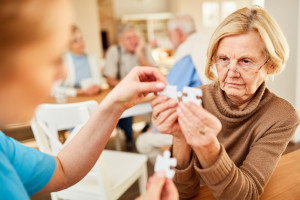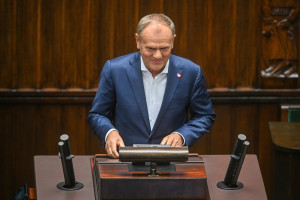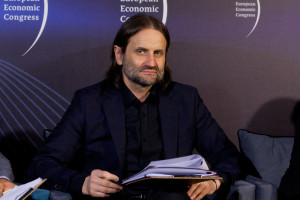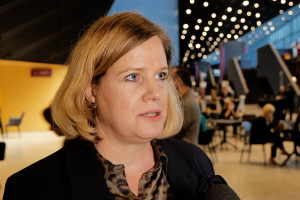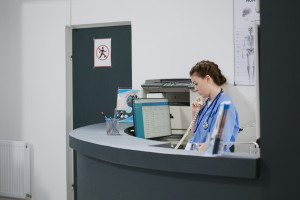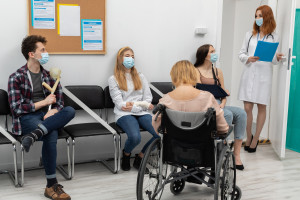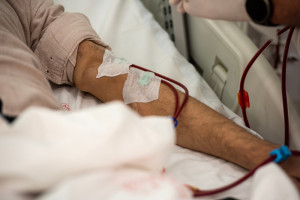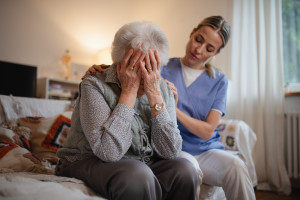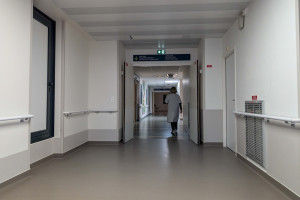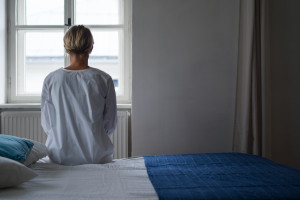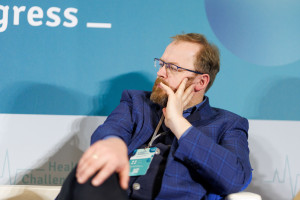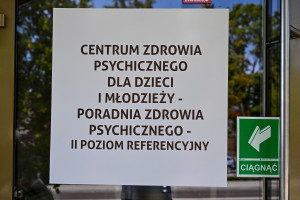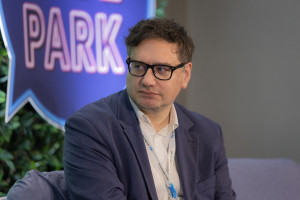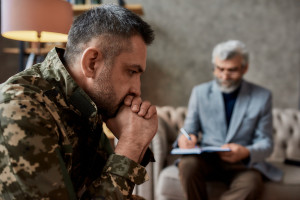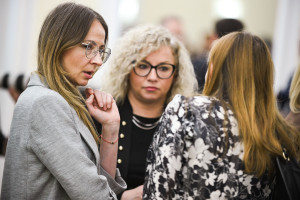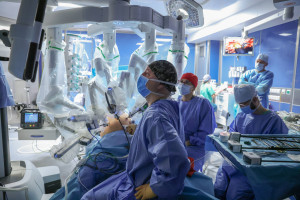95 percent of sick Poles without state support. "This is very worrying"

- According to the NIK report, around 470 thousand people in Poland suffer from Alzheimer's disease alone, not to mention other dementias. However, these are only disclosed and registered cases. How many of these are unreported and unregistered? - asks Zbigniew Tomczak
- Poland still does not have its Alzheimer's Plan, which puts us at the bottom of Europe. Other countries are already very advanced in their activities - he points out
- Almost the entire burden of caring for such a patient is borne by the family. In Polish conditions, 95% of patients stay at home and do not receive any support from the state. The same goes for their loved ones. Respite care is an illusion - he points out
- The draft law on personal assistance for people with disabilities includes a provision that assistance will be available until the age of 65. What about Alzheimer's patients who are much older? - asks Tomczak
- Over 600,000 people in Poland suffer from dementia. It occurs at a frequency of 16 people per 100,000 , and forecasts indicate that this number will increase to 29 people per 100,000 - said Dagmara Korbasińska-Chweduczuk , director of the Department of Public Health in the Ministry of Health, at a session of the Sejm's Standing Subcommittee on the Health of the Elderly.
As she pointed out, there is indeed a chance for new methods of both diagnostics and treatment of these diseases, but they are not available yet. Therefore, for now, the ministry is focusing on preventive measures.
- Thanks to prevention, the risk of dementia can be reduced by as much as 40%. The Moje Zdrowie program should play an important role here, as it includes a short screening test for dementia for people aged 60+. Thanks to it, but also thanks to other tests in the program, it will be faster to direct patients to the right treatment path - Korbasińska-Chwedczuk argued.
The head of the Department of Public Health at the Ministry of Health also referred to the issue of the National Action Plan for Dementia .
- For some time we had a problem mainly related to financing. At the moment we managed to enter the Programme into the list of works of the Council of Ministers, which means consultation activities determining the shape of this Plan. We hope that the programme will be adopted by the government this year - she announced.
She noted that inter-ministerial activities will be necessary, because the implementation of this program should involve not only the Ministry of Health, but also the Ministry of Culture, Education and Sport . The cooperation of these ministries should serve to pull the elderly out of loneliness and create opportunities for them to build social relationships, because, as research shows, these are the most effective in preventing dementia.
- Building social relations is also an important task for local government units. Older people really need meetings within, for example, senior clubs or rural housewives' associations - added Dagmara Korbasińska-Chwedczuk.
"Without a register we won't move forward"In the opinion of MP Prof. Alicja Chybicka, chairwoman of the Sub-Team, the data on people suffering from dementia seem to be greatly underestimated, considering the fact that there are about 10 million seniors living in Poland . This data should also be considered in the context of individual age groups of older people. European statistics indicate, for example, that dementia in the 75+ group affects about 34% of people .
- A register is needed, without which we will not know the real statistics and the real scale of the problem . Not to mention that those fields of medicine that have such registers are successful. Thanks to them, it is possible to expand knowledge about the disease and methods of its treatment, but also to monitor and provide better care to patients. We have excellent neurologists, geriatricians and psychiatrists in Poland, for whom the register is a very necessary tool - emphasized Prof. Chybicka.
As Zbigniew Tomczak from the Polish Association for Assistance to People with Alzheimer's Disease and the Citizens' Parliament of Seniors reminded, according to the NIK report, up to 470,000 people in Poland suffer from Alzheimer's disease alone, not to mention other dementias.
"Respite care is an illusion"- However, these are only disclosed and registered cases. The question is how many of these unreported and unregistered cases there are. I am afraid that there may be 2-3 times more of them - he assessed.
- Almost the entire burden of caring for such a patient is borne by the family, since in Polish conditions 95% of patients stay at home and do not receive any support from the state. The same goes for their loved ones. Respite care has minimal scope at the moment, because local governments do not have money for it. It is simply an illusion - he noted.
In addition, as he said, the draft law on personal assistance for people with disabilities includes a provision that assistance will be available until the age of 65. What about Alzheimer's patients who are at a more advanced age and need such assistance after several years of illness?
- Importantly, the first drug that has a causal effect on Alzheimer's disease has been approved in Europe. The condition is, among other things, an early stage of the disease development. We have great hopes for this preparation, but in order for them to come true, we need a database of people who meet the criteria for qualifying for the therapy. The question for today is: who will we administer this drug to? - asked Zbigniew Tomczak.
Alzheimer's Primary Care. "We need a contract with the National Health Fund"- The level of advancement of the National Action Plan for Dementia Diseases is also worrying. There is still no specified date for completion of the work, and let us remember that Poland is one of the 2-3 "remnants" among the EU countries that do not have an Alzheimer's Plan. How much longer and for what do we want to wait? - he said.
Kordian Kulaszewicz , president of the Adaptacja Foundation, which takes care of seniors and runs a day care centre for people with dementia in Gdynia, pointed out the need to recognise such a facility as a medical centre.
- We have been trying to achieve this for 12 years. It is worth noting that we not only provide care, but we also have to cooperate with patients and their families. For this purpose, a neurologist and a psychiatrist are needed, which means a contract with the National Health Fund. Meanwhile, there is no such billing product as a day care center for dementia patients, which could also be called, for example, Alzheimer's primary healthcare center. The need to create one is urgent, because it would be possible to relieve other entities in this way - he argued.
- We cannot cure this disease, but we can slow down its development. Give us the tools - Kulaszewicz appealed.
Copyrighted material - reprint rules are specified in the regulations .






